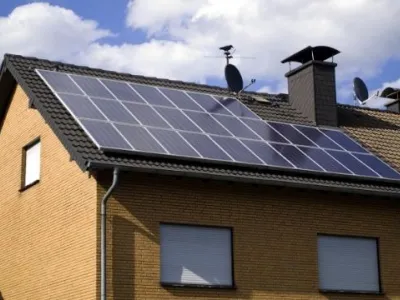Xcel should be held accountable for delays in connecting customers’ solar arrays

Published August 20, 2020
Rooftop solar has been gaining popularity in Xcel’s service territory in recent years. Xcel customers who install solar arrays on their homes or businesses receive credits on their bill for production that exceeds their use and may be eligible to receive other incentives and tax credits; however, these bill credits and incentives do not become available to the customer unless and until the solar array is “interconnected” with Xcel’s grid. Xcel customers (and solar developers working with those customers) have filed numerous complaints with the Public Utilities Commission (the “PUC”) noting delays and friction in Xcel’s interconnection process. Recently, the number of complaints filed with the PUC exceeded a threshold that potentially causes Xcel to be subject to a $1 million penalty for failure to adhere to customer service standards. Xcel is trying to avoid paying this penalty by arguing that not all complaints should be counted towards the applicable threshold.
Generally speaking, Minnesota electric utilities do not compete with other utilities to gain and retain customers. In other words, utilities in Minnesota are monopolies. Due to this lack of competition, consumers who experience poor customer service cannot simply choose another electricity provider unless they move to another utility’s service area. However, utilities’ customer service standards are regulated in other ways.
Xcel operates pursuant to, and is held accountable under, a “Quality of Service Plan” (“QSP”) that is approved by the PUC. That plan includes standards and metrics designed to ensure, among other things, that Xcel provides effective customer service to those in Xcel’s service territory. The QSP imposes penalties upon Xcel if it fails to meet the standards imposed in the Plan. For example, if Xcel receives more than an identified amount of “Customer Complaints” (as defined in the QSP) in a certain period, it must pay a penalty of up to $1 million.
In 2019, Xcel received enough complaints to exceed this threshold, subjecting Xcel to the $1 million penalty. However, Xcel has asked the Commission to exclude 129 complaints related to solar interconnections from those tallied towards the threshold, claiming that they do not meet the definition of “Customer Complaints.” If the 129 complaints are excluded, as Xcel requests, then Xcel will not be subject to the $1 million penalty.
Most of the 129 complaints at issue were filed by a single solar developer who installs solar arrays for Xcel customers. In the 129 complaints at issue, the developer noted significant delays and frustrations when using Xcel’s online portal to establish interconnection on behalf of its customers. In some instances, the developer claimed, delays in establishing interconnection caused Xcel customers to lose out on financial incentives that would have otherwise been available had Xcel’s portal operated more efficiently.
Xcel claims the developer-filed complaints are not “Customer Complaints” because (a) they were not filed by the customer themselves and (b) the customers did not expressly authorize the developers to file complaints on their behalf (though the customers did authorize the developers to represent them with respect to applying for interconnection). Xcel also claims that interconnection of solar arrays was not contemplated, at least at the volume and rate at which it currently occurs, when Xcel’s QSP was last updated in 2013.
Several comments have been filed in Docket 12-383 firmly opposing Xcel’s request to exclude the complaints. Among those who have commented, only the Minnesota Department of Commerce has supported Xcel’s proposal to exclude the complaints, though, in doing so, the Department noted that Xcel “botched” the roll out of the interconnection portal and should be held accountable for its shortcomings.
Though CUB is not a party in this preceding, we filed a letter in Docket 12-383 disputing Xcel’s arguments and noting reasonable grounds for including the 129 complaints in those tallied for the purposes of the QSP. In our letter, we express our concern that, if these complaints are separated and treated differently in this context, other complaints may be similarly excluded or devalued. This would erode the purpose and effectiveness of the QSP.
Separating complaints filed by solar developers on behalf of their customers from other customer complaints could set a precedent for categorizing and discounting certain types of customer complaints down the road. Interconnecting customer-owned solar arrays are part of the service that a modern utility provides its customers – as are promoting and servicing renewable energy options, serving electric vehicles, and more. We are concerned that beginning to categorize and weight customer complaints could dilute utilities’ accountability for serving their customers as effectively as possible. Because we are not parties to this docket and may not fully understand the ramifications of imposing a penalty on Xcel, we do not make a recommendation on how the PUC should rule in this specific instance. However, we strongly believe Xcel, and all public utilities should be held accountable for any shortcomings in their customer service. When a competitive market doesn’t provide that accountability, it is highly important that we not dull the tools that do.